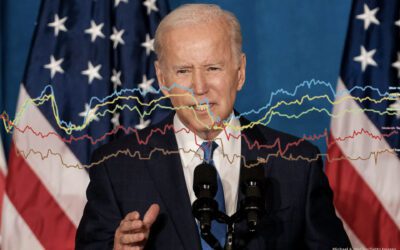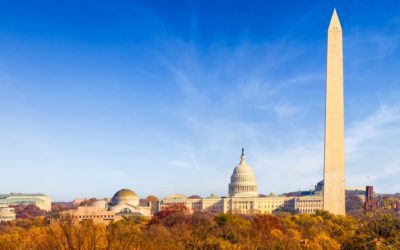The latest national survey by Greenberg Quinlan Rosner for Democracy Corps and Public Campaign Action Fund shows that voters care about money in politics and are prepared to vote for candidates who prioritize reform.[1] All voters, and especially swing voters, support reforms that would limit big money, encourage small donors, and close the revolving door between government service and lobbying. Neither party currently owns this issue and with voters up for grabs, candidates who are willing to tackle money in politics could benefit at the ballot box.
Key Findings:
- Money in politics is not a distraction from the economy, it is the economy. For ordinary Americans, this is not an either/or proposition; it is not a question of addressing money in politics at the expense of talking about pocketbook problems. Voters believe that Washington is so corrupted by big banks, big donors, and corporate lob-byists that it no longer works for the middle class. A large majority (60 percent) says candidates ought to tackle money in politics in order to make government work for the middle class.
- As a result, voters from both parties, but particularly swing voters, feel strongly about reducing the influence of big money in politics. Nearly three-quarters (73 percent) of all voters, and majorities of Republicans, Democrats, and independents, believe there should be common sense limits on the amount of money people can contribute to political campaigns. And a large majority (59 percent) is intensely committed to such limits. Voters do not believe that there are two equal sides to this debate; just a fifth (21 percent) of all voters say that limits on campaign contributions violate free speech.
- Voters will strongly support candidates – from both political parties – who seize this issue. Voters do not currently trust either party to tackle money in politics. All voters, and swing voters in particular, strongly support candidates who are willing to take on money in politics as a serious campaign issue.
- Voters support reforms to limit big contributions Voters support common sense reforms — enforceable regulations that would limit big money campaign contributions and encourage small donors instead. They also support laws to prevent top government officials and leaders from lobbying for foreign entities after leaving public service. Voters strongly believe that Washington is corrupted by big banks, big donors, and corporate lobbyists. Given two possible solutions–either enforcing new rules to make Washington work for the middle class again or shrinking the size of government to mitigate the corruption–voters prefer the former. Twice as many voters (60 percent) agree with this statement over the alternative, that Washington is so corrupted that we should shrink the size of government (31 percent). Majorities of independents, unmarried women, and white non-college-educated voters believe we need new regulations more than we need to shrink government. This is an important result for progressives and reformers.
This survey finds strong and broad-based support for alternatives to the current system of big money politics. Voters are open-minded about what the goals of a new regime should look like–whether it should promote small donations or prohibit large ones. While not mutually exclusive, we tested two different frameworks–one that would rely on small donations and another that would prohibit large donations. There are only marginal overall differences between the two and widespread support for both. On our thermometer scale, favorable ratings outnumber unfavorable ratings by almost two-to-one for both plans. A plan to prohibit large donations but keep limited public funding has mean rating of 57.1 points, well above the neutral rating of 50. Independents and moderate voters are some of the strongest supporters, each giving this plan a mean rating just over 60. Voters also support a system that would rely on small contributions supplemented with limited public funding. Among all voters, this plan has a mean rating of 56.3, with strong support among independents (mean 59.8) and moderates (mean 60.4).
Voters are also ready to stop the revolving door between public service and lobbying. Two-thirds (66 percent) of all voters favor a bill, like the Foreign Lobbying Reform Act, which would prohibit the President, Vice President, members of Congress, and other top-level appointed officials from lobbying for any foreign government or corporation for ten years after leaving government service. A strong plurality (40 percent) says they favor this bill strongly. This bill also has broad bipartisan support and support among key swing voters. A strong majority (71 percent) of Republicans support this bill. Importantly, independents support the bill more intensely than partisans of either party–72 percent of independents support this bill, and half do so strongly.
Money in politics is a ballot box issue
There is a significant opening for candidates to claim the mantle of money in politics reform and plenty of voters are willing to make it a ballot box issue. A significant majority (57 percent) say that reducing the influence of money in politics and special interest lobbyists is one of the most important factors in deciding which candidate to vote for. Key swing voters come down strongly on this issue. Two-thirds of independents (67 percent) say it is one of the most important issues and more than half of all independents (52 percent) strongly believe it is one of the most important issues in selecting a candidate. Neither party can afford to leave this issue on the table. Six in ten seniors report that this will be one of the most important issues in selecting a candidate and more than half (54 percent) say so strongly. A strong majority of white non-college-educated voters (61 percent) and 58 percent of those in the Rising American Electorate (unmarried women, young people, and minority voters) say this will be one of the most important issues at the ballot box. And it is not something candidates should ignore. Voters are also willing to punish candidates who do not commit to reforming the current system. A majority of all voters (52 percent) and more than half of all independents (55 percent) say that they won’t vote for candidates who will not commit to reducing money in politics.
Opportunity for candidates on both sides
Neither party currently owns this issue of money in politics and voters are wary of politicians on both sides. While Democrats are viewed more favorably than Republicans on “cleaning up how we pay for elections,” for the most part, there is a big opening for both parties to claim this issue in a serious way. Asked which party would do a better job addressing money in politics, a substantial number volunteers “neither.” Politicians should pay attention when 17 percent say that neither party does a better job “cleaning up the mess in Washington and Wall Street.” High numbers also volunteer that neither party does a better job of “putting the needs of everyday Americans before special interests” (10 percent) or “cleaning up how we pay for elections” (12 percent). Including those who either refuse to answer the question or say they don’t know, nearly a third of all voters cannot indicate whether one party is better than the other on the issue of money in politics.
Among independents, the opening is substantial. Half of all independents either refuse to answer the question or volunteer that “neither” party is better at cleaning up how we pay for elections. This presents a significant opportunity for candidates to fill the vacuum on a serious and popular issue. Democrats begin with an untapped advantage, as voters overwhelmingly believe that Democrats are better at “putting the needs of everyday Americans before special interests.” Almost half of all voters (47 percent) believe that Democrats are stronger on this issue and they lead Republicans by a healthy 14-point margin. There is a clear opening for willing Democrats to translate the support that they have in looking out for the needs of regular Americans into actual trust in cleaning up the mess in Washington.
The corrupting influence of money in politics
It is not surprising that voters are willing to cast ballots on this issue. Substantial majorities harbor very serious doubts about candidates who take money and subsequently pass laws favorable to their contributors. We tested a series of messages about candidates who cast votes that benefit oil companies, Wall Street banks, and the wealthiest taxpayers. While each of these messages tested well, performance slightly increased, specifically in intensity, when we added that these candidates had also received campaign contributions from the beneficiaries of those votes. This is particularly potent among key swing voting blocs, including seniors, white non-college-educated voters, and independents and weak partisans.
A strong majority of all voters (71 percent) say they have doubts about a candidate who gives tax breaks to big corporations and the wealthiest while raising taxes on middle class families.
This increases to 73 percent, with a 5-point jump in intensity, when we add that the candidate also received millions of dollars from Big Oil, Wall Street, and lobbyists.
This is particularly powerful among key voting blocs. The first message raises doubts among two-thirds of all seniors (67 percent). That increases to three-quarters (75 percent) when campaign contributors are included. More importantly, the intensity of this message among seniors increases 17 points (from 25 percent with very serious doubts to 42 percent with very serious doubts). Among white non-college-educated voters, overall message strength increases 7 points (from 70 to 77 percent) and intensity increases 10 points (from 32 percent very serious to 42 percent very serious). Among independents and weak partisans, overall message strength increases 7 points (from 69 to 76 percent) and intensity increases 3 points (from 35 to 38 percent).
Two-thirds of all voters (65 percent) are persuaded by a message that focuses on tax breaks for profitable oil companies.
Support for this message increases one point, and intense support for this message increases three points (from 31 percent to 34 percent), when we add that the candidate also took campaign contributions from oil executives and lobbyists.
Adding campaign contributions increases resonance among independents and weak partisans and white non-college-educated voters.
A strong majority of all voters (69 percent) are persuaded by a message that attacks a candidate who sided with Wall Street profits over struggling families with student loans.
Support for this message increases one point, and intense support for this message increases four points (from 26 percent to 30 percent), when we add that the candidate took campaign contributions from Wall Street CEOs.
Adding campaign contributions increases its resonance among key swing voters, especially seniors and women under age 50.
[1] This memo is based on a national survey of 1000 likely 2012 voters conducted April 28-May 1, 2012 by Greenberg Quinlan Rosner Research for Democracy Corps and Public Campaign Action Fund. Unless other-wise noted, margin of error= +/- 3.1 percentage points at 95% confidence.

















